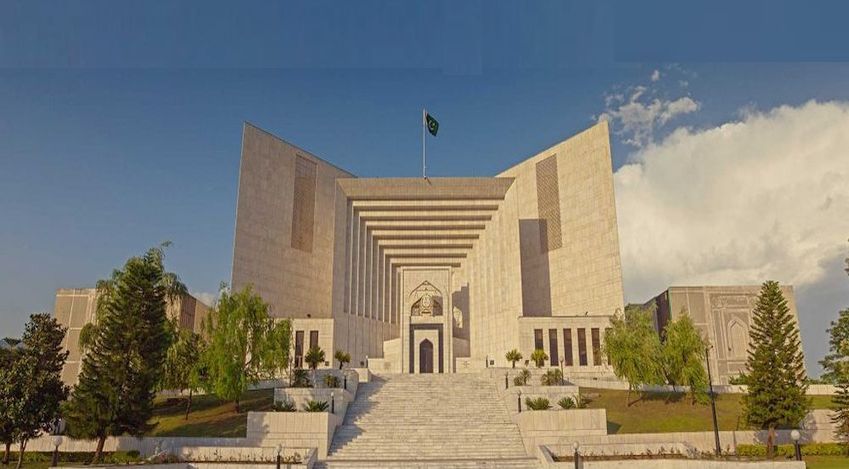The Government Departments must be pursue Litigation with Due Diligence as such Time-Barred Appeals create vested Rights for the Opposing Party --- Supreme Court of Pakistan
Islamabad 28-02-2025: The Supreme Court of Pakistan has dismissed the [CPLA No. 694-P of 2024], filed by the Government of Khyber Pakhtunkhwa’s Communication & Works Department, against M/s Parcon Associate Government Contractors, reaffirming the strict application of limitation laws and ruling that government departments cannot seek special treatment in litigation.
The dispute arose when Parcon Associates, a government contractor, filed an arbitration claim under Section 14(2) of the Arbitration Act, 1940, seeking enforcement of an award dated 03.02.2021. The trial Court dismissed objections filed by the government and made the arbitration award a rule of the Court on 17.07.2021.
The Government of Khyber Pakhtunkhwa (C&W Department) initially appealed to the Peshawar High Court (PHC) on 14.10.2021, after obtaining certified copies of the judgment on 06.10.2021. However, the PHC transferred the case to the District Judge, Peshawar, after finding that the decree amount (Rs.17,150,988) fell within the pecuniary jurisdiction of the Civil Court.
The District Court subsequently dismissed the appeal on 14.02.2024 as time-barred, leading the petitioners to file a revision petition before the PHC, which was dismissed on 19.07.2024, prompting the appeal before the Supreme Court of Pakistan.
A bench comprising Mr. Justice Naeem Akhter Afghan and Mr. Justice Shahid Bilal Hassan rejected the government’s plea for condonation of delay.
The Court ruled that the law of limitation is not a technicality and must be applied strictly to ensure legal certainty. It emphasized that once the limitation period expires, the opposing party acquires vested rights, which cannot be disturbed merely due to negligence or administrative inefficiency on the part of the Petitioner.
- Akhtar Nasir Ahmed Vs. Province of Punjab (PLD 2024 SC 1268): “The law assists the vigilant, not those who sleep on their rights.”
The Court reiterated that government departments must be treated like private litigants and cannot claim special privileges in limitation cases.
- Messrs SKB-SNK Joint Venture Contractors Vs. WAPDA (2022 SCMR 1615): Government departments must adhere to the same legal standards as private parties.
The Petitioners erroneously filed their appeal before the PHC, which then transferred the case to the District Judge, Peshawar. The Supreme Court of Pakistan ruled that this mistake was due to negligence and not legal ambiguity, thereby disqualifying the petitioners from seeking condonation under Section 14 of the Limitation Act, 1908.
- Abdul Ghani Vs. Mst. Mussarat Rehana (1985 CLC 2529): Time spent in the wrong forum cannot be excluded unless due diligence and good faith are proven.
The Court noted that the Petitioners delayed their appeal by four days even after obtaining certified copies of the trial Court’s judgment, showing a lack of due diligence. The Supreme Court of Pakistan reaffirmed that each day of delay must be justified with a plausible explanation.
- Imtiaz Ali Vs. Atta Muhammad (PLD 2008 SC 462): Even one day of delay without a sufficient reason cannot be condoned.
The Court dismissed the Petitioners’ argument that they should not be penalized for filing the appeal in the wrong forum, stating that the principle “Actus Curiae Neminem Gravabit” does not apply when the litigant’s own negligence caused the delay.
- Abdul Ghani Vs. Ghulam Sarwar (PLD 1977 SC 102): Negligence in selecting the correct forum is not excusable.
After reviewing the Petitioners’ procedural lapses and lack of due diligence, the Supreme Court of Pakistan dismissed the petition, refusing leave to appeal. The ruling reinforces that:
- Litigation must be pursued with diligence and within the prescribed limitation period.
- Government Departments cannot seek leniency in procedural compliance.
- Filing in the wrong forum due to negligence does not justify condonation of delay.
The Supreme Court of Pakistan decision serves as a strong precedent for enforcing limitation laws strictly and holding litigants, including government bodies, accountable for procedural lapses.
Legal experts have welcomed the ruling as a landmark decision reinforcing judicial consistency in applying limitation laws. Senior legal analysts believe the judgment will discourage frivolous appeals and ensure accountability in government litigation.
What This Means for Future Cases:
- Litigants must carefully select the correct appellate forum.
- Government entities must ensure procedural diligence when challenging judgments.
- Strict compliance with limitation laws will continue to be upheld in future cases.
With this ruling, the Supreme Court of Pakistan has reaffirmed that procedural laws are to be followed rigorously, and no litigant, including the government, is above the rule of law.
Powered by Froala Editor








